Clinical Leadership and Patient Care
VerifiedAdded on 2020/01/23
|5
|818
|245
Essay
AI Summary
This essay examines the crucial role of clinical leadership in healthcare systems. It highlights the importance of clinicians understanding complex healthcare systems and bridging the gap between medical literature and practice. The essay argues for a culture of innovation, mutual respect, and teamwork fostered by leadership at all levels to ensure high-quality patient care and effective service delivery.
Contribute Materials
Your contribution can guide someone’s learning journey. Share your
documents today.
1 out of 5
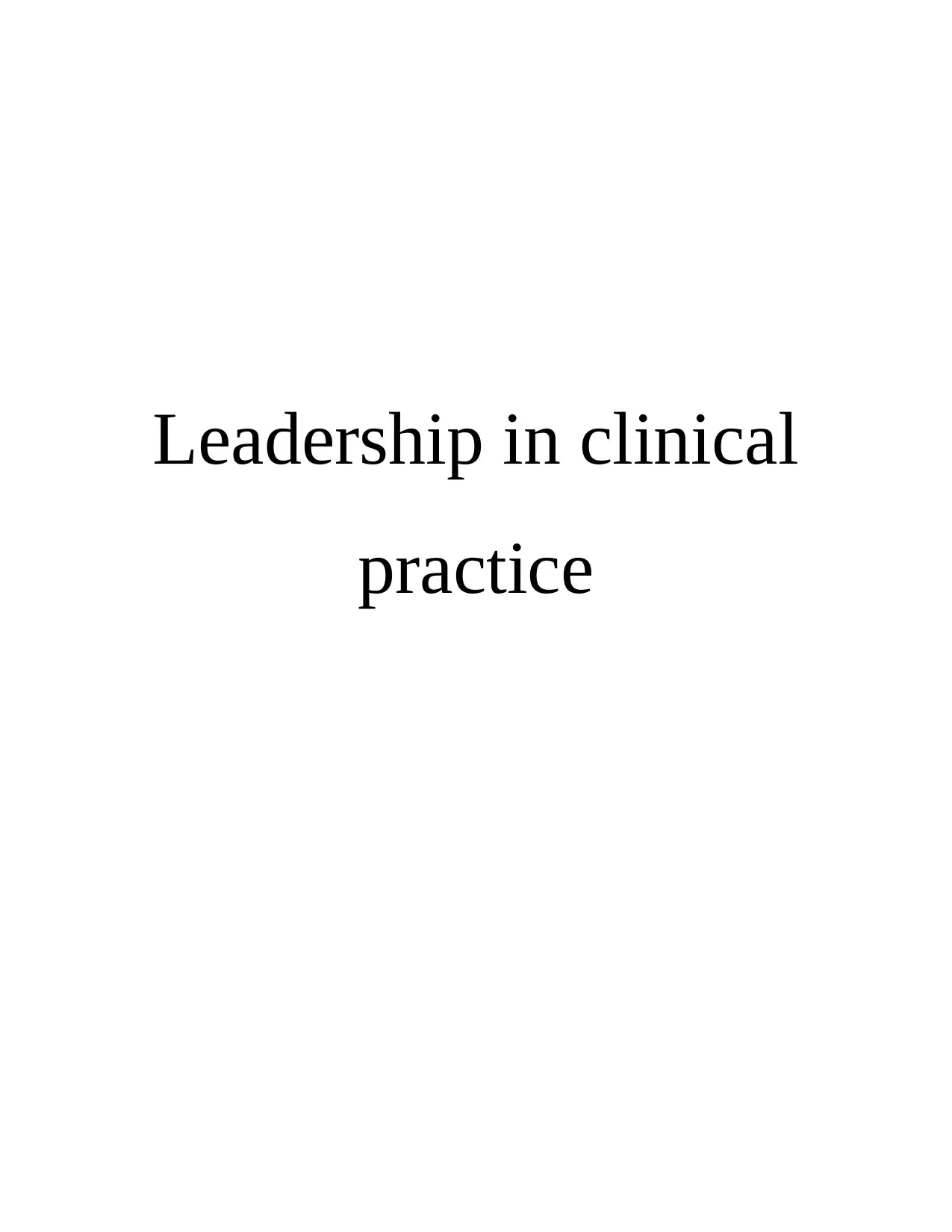
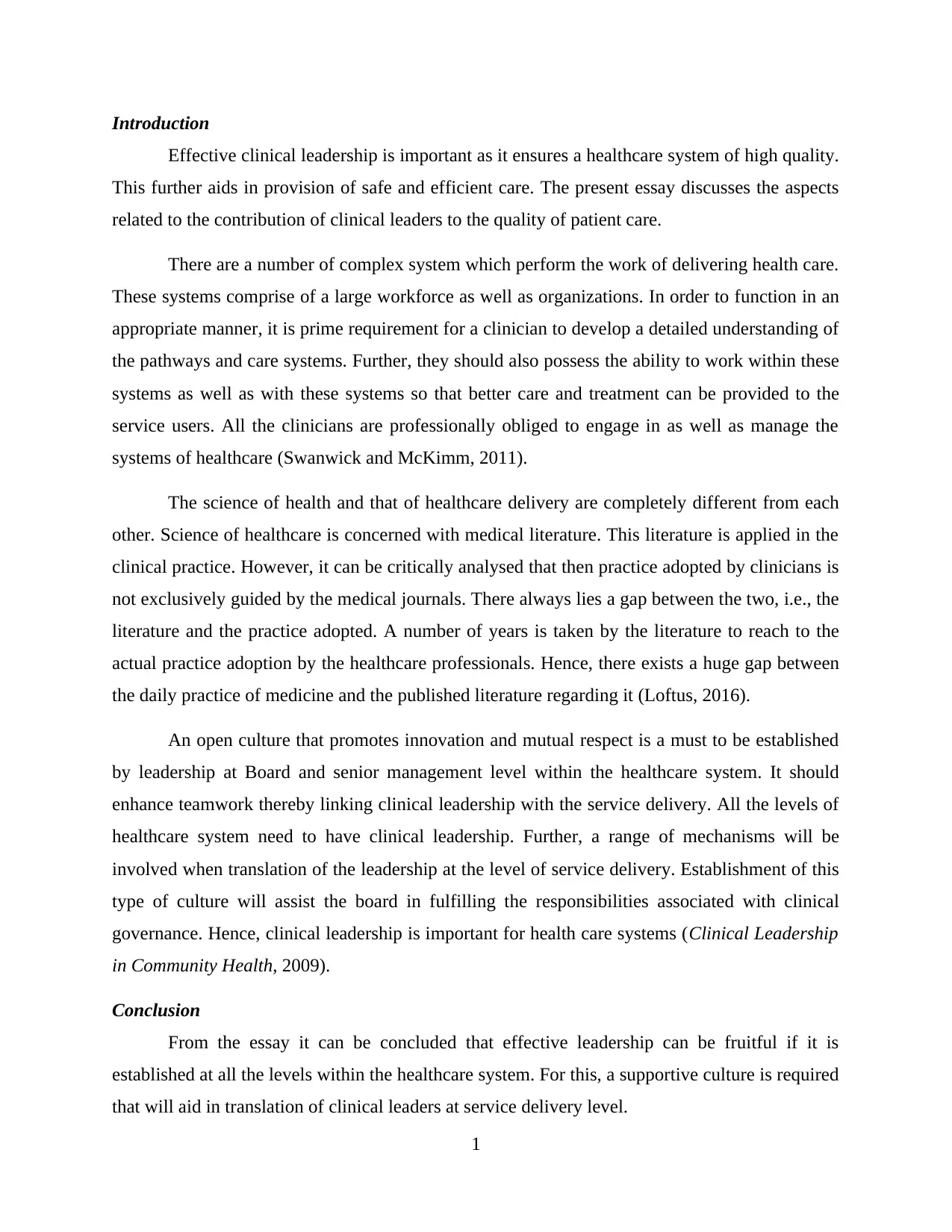
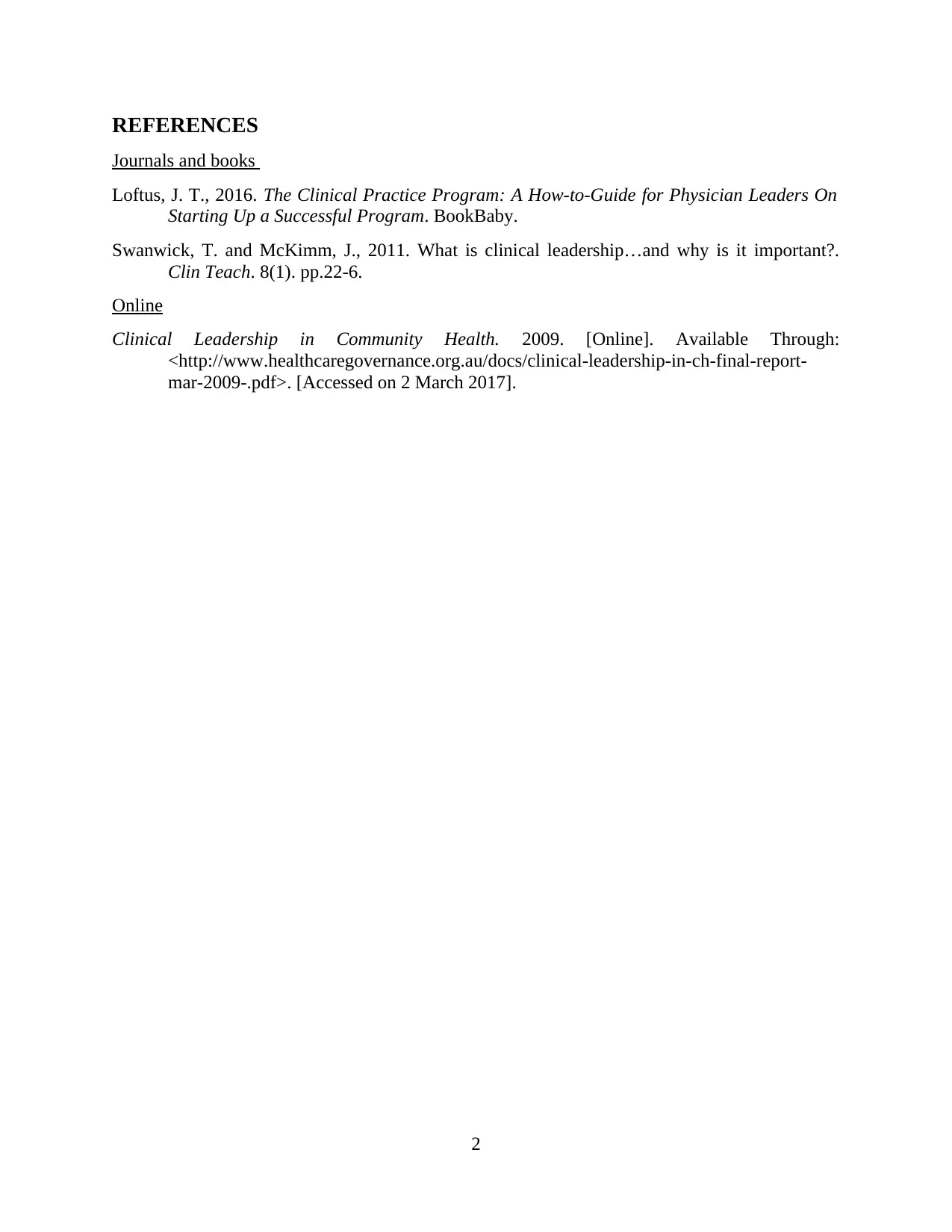
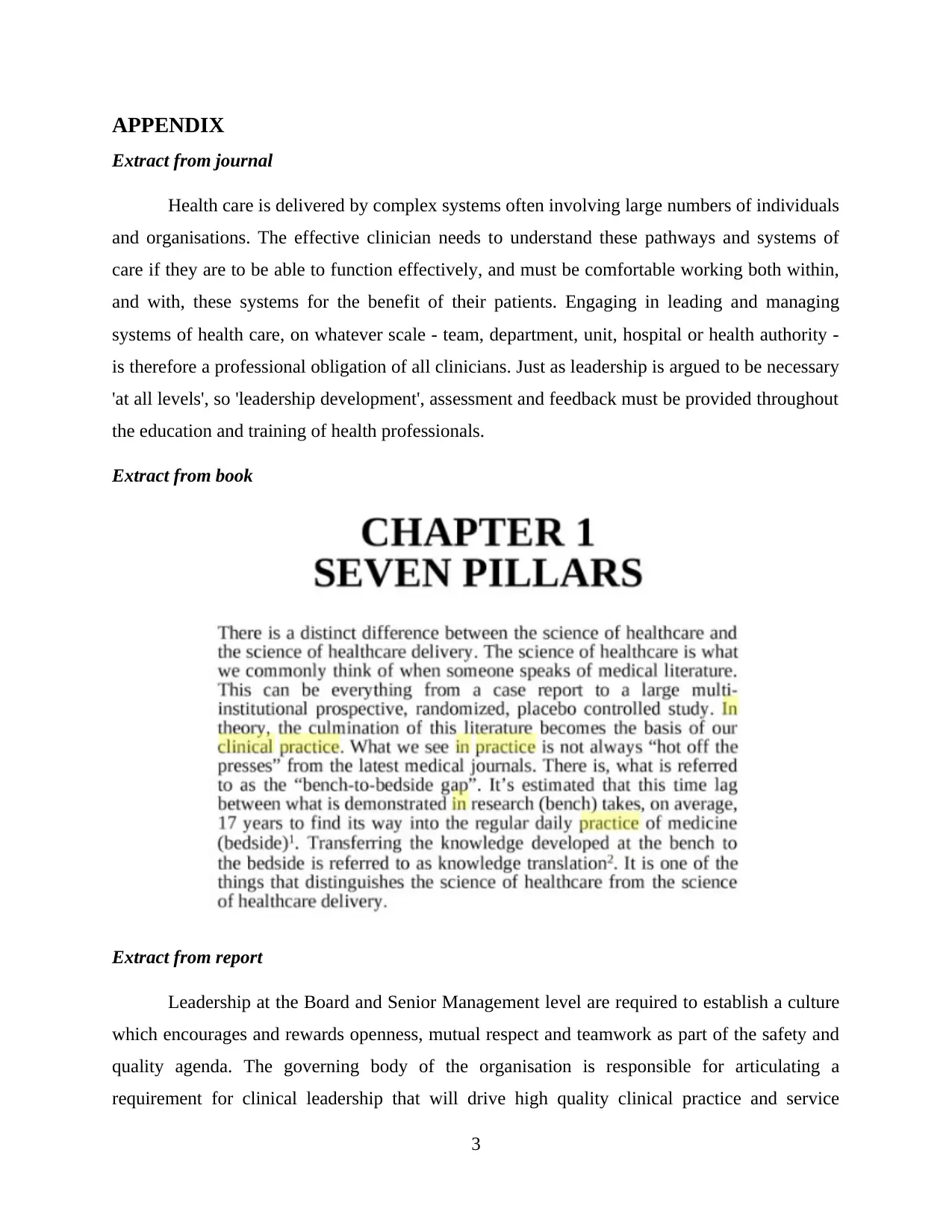
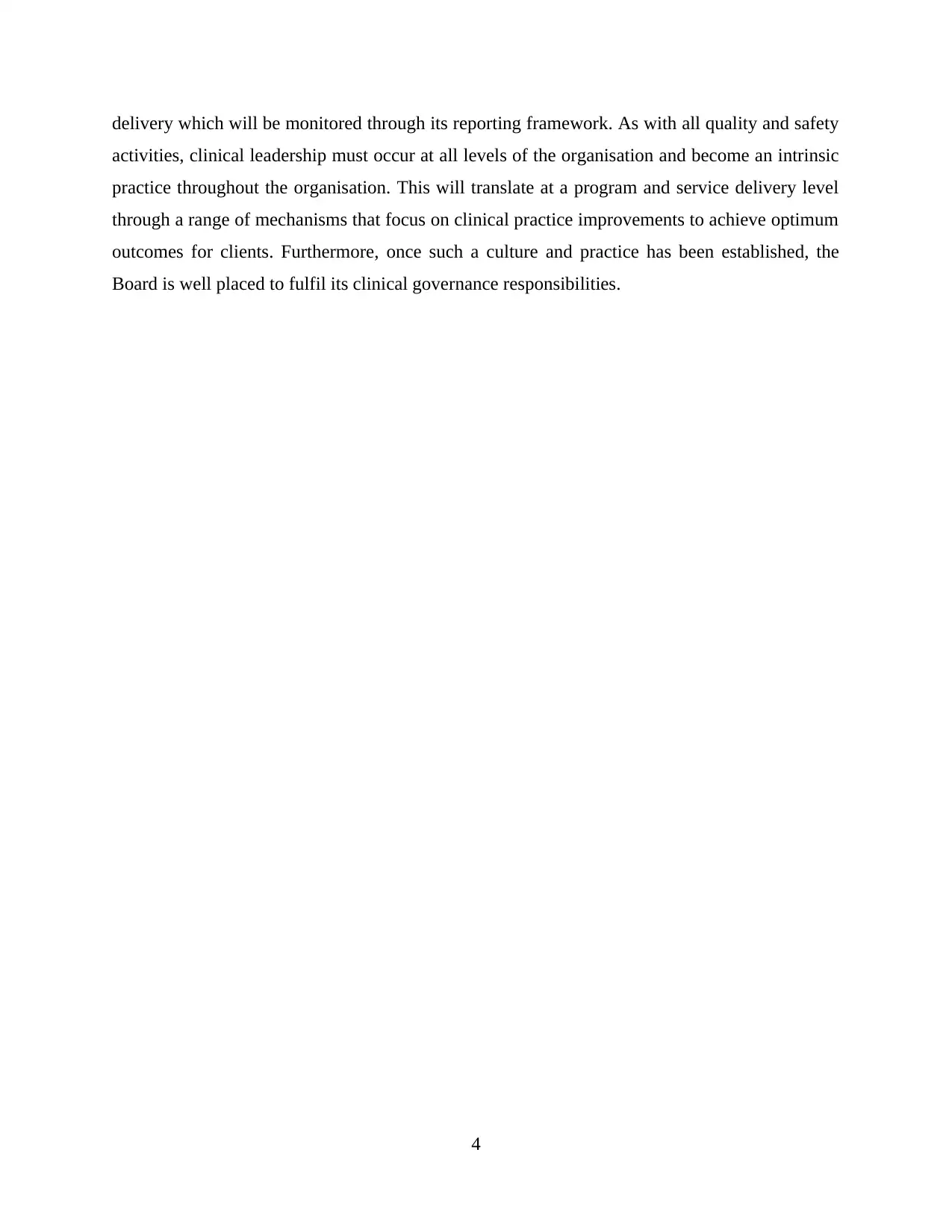






![[object Object]](/_next/static/media/star-bottom.7253800d.svg)